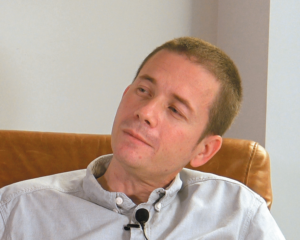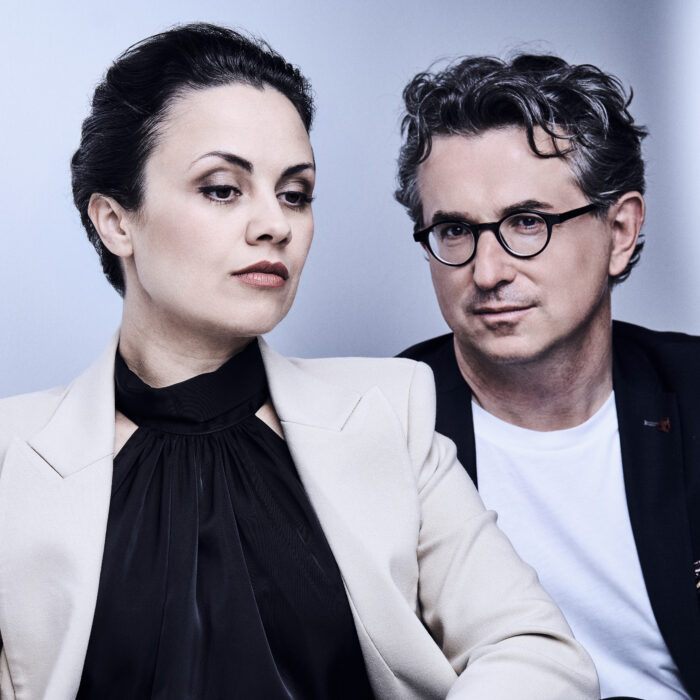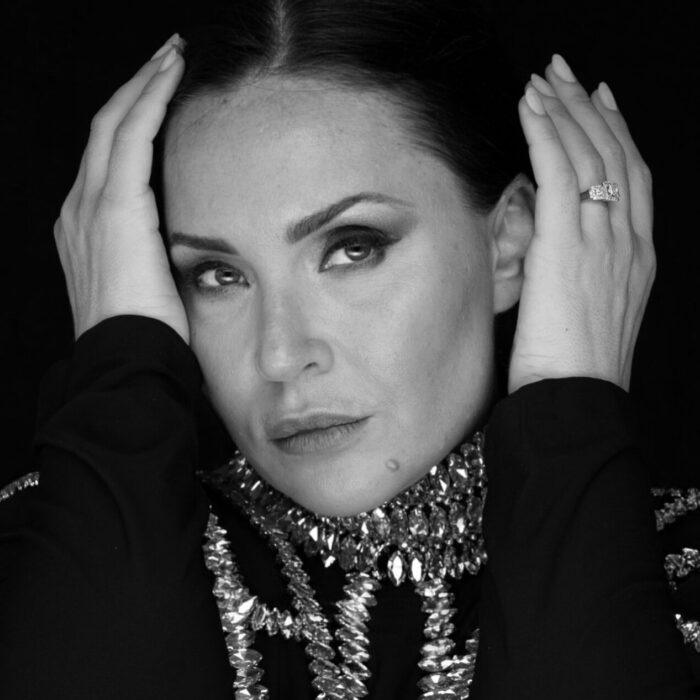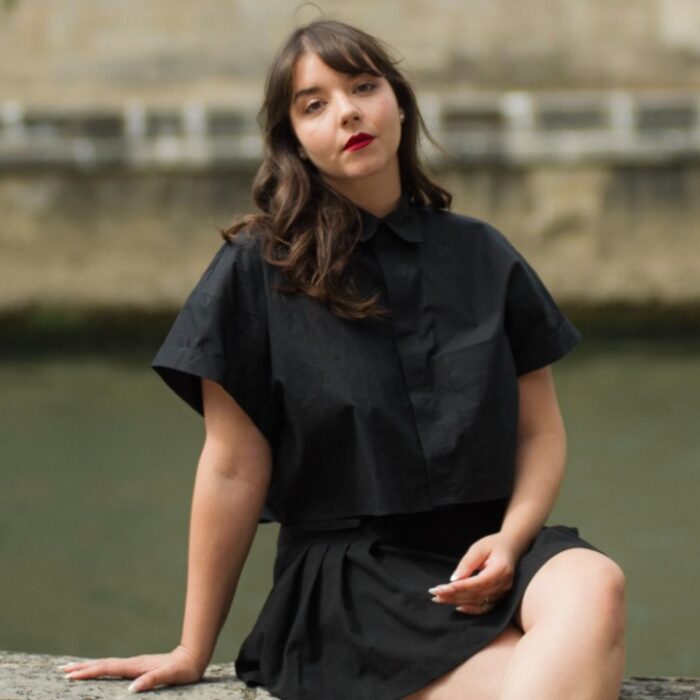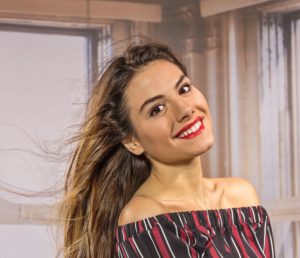
Q A: Serena Sáenz On The International Opera Studio, Dancing, & Her Fitness Routine
By Dejan Vukosavljevic(Credit: Maxine Robertson)
Young Spanish soprano Serena Sáenz is currently a member of International Opera Studio in Berlin at the Staatsoper unter der Linden where she is currently performing roles of Pamina and Papagena in Mozart’s opera “The Magic Flute,” she has debuted in “Siegfried”as Der Waldvogel. She is also preparing roles of Zerlina in “Don Giovanni,” Frasquita in “Carmen,” and Gilda in “Rigoletto.”
OperaWire recently talked with Ms. Sáenz about her lively childhood, opera as an athletic discipline and her plans for the future as she launches the next step of her career.
OperaWire: You were born in Spain. Tell us about your upbringing in a country of a lively and beautiful music.
Serena Sáenz: I was born in Barcelona. I had a very rich childhood, let’s say – when it comes to arts, sports and extracurricular activities, my family made sure I could try out all the different possibilities set out for me, so I could find my passion.
Since I was very little I started with piano and music theory – I was actually six-years-old when I started music – and then, I also have danced since I was six. In those days my passion, my only goal was dancing. I would go to ballet lessons, jazz, hip-hop, I even did musical theater, professional training, then when I grew a little older I had a course for professional dancing.By chance somehow I started to sing in the Children’s Choir of Palau de la Música – that happened when I was 12, the director at that time was Elisenda Carrasco. She really encouraged me to tackle my musical side and within the very first month I entered the choir she sent me to my first audition in Liceu.
I had no idea what to expect or what it was like to sing in an opera house, or what opera even was. But they took me and I did my debut at the Liceu when 12-years-old for the children’s opera “Brundibár” by Hans Krása. That was a very interesting process, it was lovely, was my start.
OW: How did you further develop your singing abilities?
SS: I have been in this choir school for eight years, from the children’s one I passed on to the youth choir. It was very enriching to sing in this ensemble. We had theory lessons, vocal coachings and concerts. We had tours around Catalonia and we also went abroad – to Prague I remember for a couple of concerts. It showed me there was a possibility out there for me to do this as a job. Even though I was not sure about it,
I didn’t have a clear idea of what I wanted to do.
That came later when I decided to go to the Superior Conservatory of Music in Barcelona. But it took me a long time to decide whether I want to do that or not, because I did not want to miss my dancing side. When I discovered I could sing, I thought “Perfect, I can just do musical theater: dance, perform, act and sing, all at once.” That was my goal when I was 16-17 years old.
I went to London for one year and I performed Maria in “West Side Story.” But when I came back to Barcelona, back to the choir, the experience of being able to perform at Palau de la Música made me love classical music even more and let me see that this higher art had nothing to do with musical theater which I liked at that time.So I decided to really invest all my time just to develop my voice in a classical direction.
I finally started my Bachelor in Liceu Superior Conservatory of Music in Barcelona – that was for two years – and then I did my Erasmus here in Berlin which also changed my view on what the future could hold.
OW: Why did you opt for Berlin, specifically Berlin Staatsoper International Opera Studio at this point of your career?
SS: I was very enthusiastic about the fact that the General Musical Director of the Berlin Staatsoper unter der Linden is Maestro Daniel Barenboim and it was also an amazing opportunity for me to be able to work with him, even only once. I did the preliminary audition for a competition in Staatsoper Berlin, they really liked my voice and decided to invite me to audition for the Opera studio.
OW: What was your first role at the Berlin Staatsoper?
SS: My first role was the season before I joined the Opera studio – I sang Papagena in the Everding staging of “The Magic Flute”.It is a production they have had for many years in the house, and it was a wonderful experience. I was so excited! The costume was just beautiful, colleagues were wonderful, but it was also scary because it was my first time on stage with orchestra that wasn’t – let’s say – a safe environment where I had been in before. It went really well. I felt that I was just in the place where I should be.
OW: How do you generally prepare for a role? How does that process work for you?
SS: I guess the first thing I do is that I read about the context of the opera, when it was written, what was the background. I inform myself about the history of the opera.
Then I read the libretto, the translation. I make sure that I know everything that’s happening and of course every word that I say. Then the musical part follows where I first try to learn the rhythm and add the melody. I probably sing the difficult passages just with vowels, and when that’s done I add the text. When the text is added, the most difficult part that begins, which is to find the right colors and dynamics that match the emotions the respective character has in that moment. This is a process that does not come in one week.
OW: In February this year you had one very unexpected development. Anna Prohaska, who was slated to sing Pamina in the new production of “The Magic Flute” at The Staatsoper Berlin, got indisposed, so you were invited as the replacement on a short notice. What was that experience like?
SS: I had done maybe 10 days of scene rehearsals of this production as Pamina, so I knew the movements, what was going on stage and I had learned the role musically. So I was prepared. But of course I would have never thought that it was going to be me singing the premiere! When they came to ask me, I just didn’t have a choice. I said yes. I did not have a stage rehearsal, just one flying test because in this production we fly at nine meters above the ground. I let destiny do the rest: I couldn’t do anything more, couldn’t fight against it, couldn’t stress myself. I was just very grateful that this opportunity came and I embraced it.
OW: Which are the roles you are most comfortable singing?
SS: I feel very comfortable with Mozart roles. They are delicate and feel really good for my voice. I am currently preparing the role of Gilda in “Rigoletto” which I would very much like to perform soon. Bel canto is also one of my strengths – I would say The Ina’s – Norina, Pamina, Adina, Amina. “Lucia di Lammermoor” will come eventually.
In the French repertoire, that would be Sophie from the opera “Werther,” and of course baroque! I am currently preparing a beautiful Scarlatti concert that is going to be my debut in Pierre Boulez Saal in November, with two serenatas for soprano and mezzosoprano. It is just beautiful music, a lot I must say – I have to sing eight da capo arias on that evening, but it is very welcomed: I love baroque music and it also feels good.
OW: Operatic singing is practically an athletic discipline, requires lots of stamina and energy, and you have developed your own way to properly nourish your voice and stay in good shape. Tell us more about it – you named it The Operafit?
SS: Additionally I studied to be a personal trainer and a nutritional coach because since I was little I danced and I have a big body awareness, and what experience tells me is that stage directors want athletes nowadays.
They want people who are able to run around the stage while they sing difficult arias. They want them to do things that might seem easy if you were not singing, but when you are singing and you need to hold the same vocal line during all these movements, you need to have a much better control of breath, support and body awareness.
That is why I decided to dig in on specific exercises that could really help me develop that, and I have come to create my own program for maintaining this athletic body that allows me to sing comfortably in nearly any position and not run out of breath.
It is based on cardio training combined with high intensity interval training. Three times a week I do 25 minutes. One day is focused on upper body plus cardio. Another day is focused on lower body and cardio and third day is full body high intensity cardio. Besides this, which is the part that tones up the body, I have the presinging sequence that I like to do everyday before I sing or before the performance. It is mostly made up of active stretches, combined yoga positions like the downward dog, updog, a lot of hip opening because I feel the support comes from the lower abdomen and hips need to be just relaxed and open for this in order to work fine.
Then I have breathing exercises that also involve core strengthening and I happened to discover that hypopressive abdominals are the best abdominals a singer can do because they don’t tighten, they don’t make your abs stiff as they maintain them really flexible, increase the strength in the inner abdominal wall and you develop a longer breath. It is the best exercise ever! You vacuum the air and then you hold in all you organs for the maximum possible time, and then you release letting everything come out. It is a wonderful exercise to do five minutes every day.
OW: Theoretically an actor has much time for a dramatic expression, but singer has to stay within limits of the score and the libretto. How do you find your freedom when limited – dramatic expression when bound by the music?
SS: Besides the existence of a clear stage idea, I think each performer just needs to keep true to herself, and not try to be an image of the character. For example if I am embodying Pamina in “The Magic Flute,” how can I translate Pamina’s feelings into my own feelings?
When I relate to the character and find a connection with my own experiences, I believe the distance between the public and me as a performer shortens through the emotions you are transmitting. When you give more of yourself, you can touch. But it is a very difficult process. And I don’t believe that everyone is going to love what I do, but if I just have been true to myself and I haven’t forced anything or I haven’t done anything I don’t believe in, then I know I did a good job.
OW: What are the roles that you would really love to sing in the future?
SS: I would love to sing “Manon” by Massenet. Her as a woman fascinates me and it’s a very challenging vocal role, I think it could be a challenge for the emotional development on stage. “Lucia di Lammermoor” too. Somehow I love to play crazy women on stage. Juliette from Gounod’s “Romeo and Juliette” and Violetta in “La Traviata” are also included.
